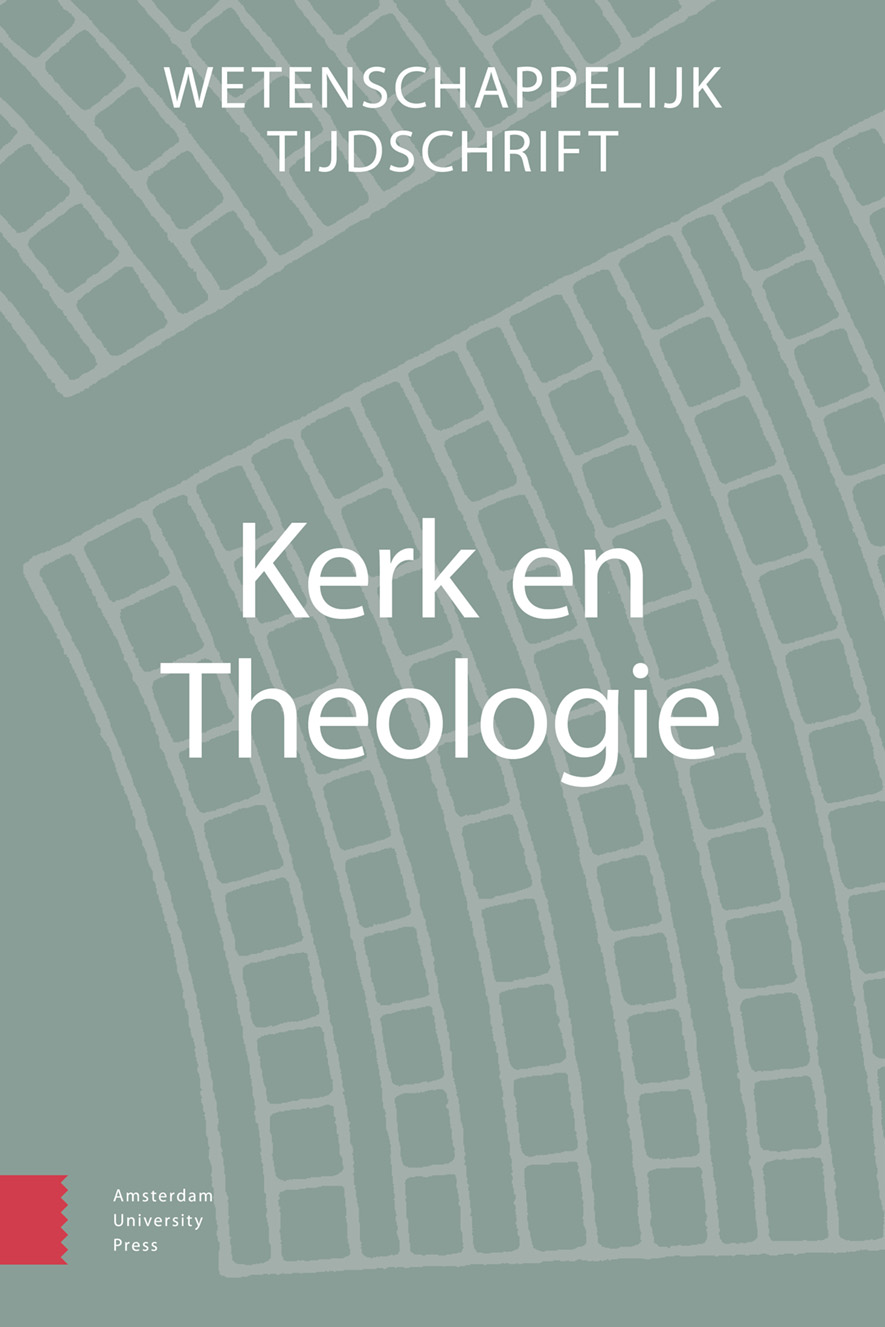- Home
- A-Z Publications
- Kerk en Theologie
- Previous Issues
- Volume 76, Issue 2, 2025
Kerk en Theologie - Volume 76, Issue 2, 2025
Volume 76, Issue 2, 2025
- Redactionele inleiding
-
- Meditatie
-
- Article
-
-
-
Het lezen en interpreteren van teksten
More LessAuthor: René van WoudenbergThis article presents the main claims and ideas developed in my book The Epistemology of Reading and Interpretation. It also explains how the analytic approach taken differs from the ‘Continental’ approach to reading and interpretation that is usually taken in theological discussions.
-
-
-
-
Lezen en interpreteren – zonder (sociale) context gaat het niet
More LessAuthor: Koert van BekkumThis article reflects on René van Woudenberg’s The Epistemology of Reading and Interpretation (Cambridge: Cambridge University Press 2021) from the perspective of Old Testament/Hebrew Bible studies. Current digitalization shows striking parallels with the function and development of reading, writing and authorship in antiquity. This gives indeed rise to asking epistemological questions. As Van Woudenberg’s text itself shows, however, writing, reading and interpretion seem to be more embedded in a social context than the book suggests.
-
-
-
Over existentieel verstaan en hergebruik
More LessAuthor: Hans BurgerThis article discusses Rene van Woudenberg’s The Epistemology of Reading and Interpretation from the perspective of theological hermeneutics. His analytic approach is valuable to underline the cognitive dimension of the Christian faith. At the same time, the book has its limitations, especially when the reading of Scripture is concerned. Because of the existential dimension of understanding, the noetic consequences of sin, the soteriological acts of God in understanding Scripture, and the reuse of texts within Scripture itself, more needs to be said. Thus, the article contributes to the dialogue between analytical and hermeneutical approaches of theology and philosophy.
-
-
-
‘Wat heeft het gelezene ons nu te zeggen?’
More LessAuthor: Arjan van den OsThis article will be a dialogue of a New Testament scholar with René van Woudenberg and his book on the epistemology of reading. First, Van Woudenberg asks legitimate questions to Biblical scholars on epistemology and meaning. Next, using the quotation from Deuteronomy 25:4 in 1 Corinthians 9:9, this contribution will show that the use of the Old Testament in the New Testament creates tension with the principles of authorial intent found in the work of Van Woudenberg. Finally, the influence of history and sin on reading and the view of Van Woudenberg on the sciences are addressed.
-
-
-
Hermeneutiek en normativiteit
More LessAuthor: Wout BisschopHermeneutics as a discipline consists mainly of three parts or projects. The reflection on interpretation practices is a form of epistemology, the reflection on the use of an object of interpretation is a form of ethics, and the reflection on the reception of an object of interpretation is a form of aesthetics. These three may differ in normative character: it can be about truth and correctness, or about other values or standards. The three are not in conflict with each other, nor can they substitute each other, but they have their own place. The recognition of these different hermeneutical projects offers an orientation in the field of hermeneutics, and can help to prevent the evaluation of a practice with standards that do not apply to it.
-
-
-
Epistemologie, interpretatie en de mystieke factor
More LessAuthor: René van WoudenbergThis article is a reply to four critics of my book The Epistemology of Reading and Interpretation. In particular, I reply to two main concerns: (1) that I have an improper respect for authorial intentions in the interpretation of texts; (2) that my approach cannot accommodate the phenomenon of ‘existentially understanding’ a text, which is so important when it comes to reading the Bible. My reply to the first concern is that there are very good reasons to give authorial intentions pride of place in interpretative processes. My reply to the second concern is that my approach does accommodate the phenomenon mentioned.
-
- Kroniek
-
- Boekbesprekingen
-
Volumes & issues
Most Read This Month


